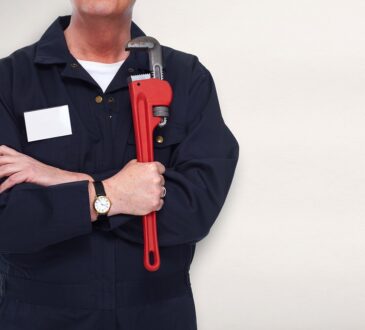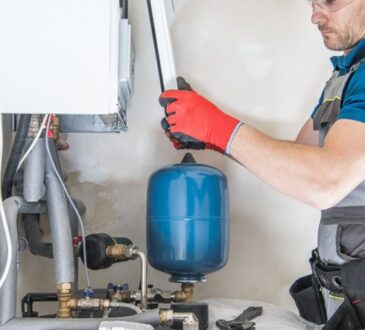
When it comes to home improvement and repair, there are a lot of different tools that you can use. Some are all-in-one tools like screwdrivers and wrenches, and others are more specialized, like a saw or a hammer.
If you’re a DIY plumber and you plan to be working on your projects at home, it’s crucial that you have the right tools for the job. Here are five essential tools every DIY plumber should have:
Must-Have Tools for DIY Plumbers
- Drill Bit Holder
Drill bits are cheap and great to have around because they save time and money. This drill bit holder holds up to 10 different drill bits in one place, so you don’t have to search for them when you need them. It also has a cap that keeps the bits clean and dry for storage. You can shop this from a reputable online plumbing supply store.
- Impact Driver
An impact driver is another tool every plumber should have in their toolbox because it does quick work of installing pipes, fittings and more. If you don’t already have an impact driver, consider getting one because it will make your life easier as a DIY plumber.
- Hose bender
This tool bends PVC hoses into their final shape before they’re clamped into place on your project. Some models already have a hose clamp, while others require you to attach it yourself before use.
- Caps
These are used to cover threads when you’re connecting pipes together. There are different types of caps. Some have rubber O-rings that seal against the threads, while others have plastic discs that cover them completely.
- Ratchet wrench
A ratchet wrench is also used to loosen or tighten nuts and bolts and turn wrenches on sockets and pipes. This wrench has an adjustable jaw that allows it to fit different sizes of nuts and bolts.
- Level
A level is one of the essential tools for any DIY plumber because it is used to check if your pipe is straight or not. If there are any leaks, you will know immediately because water will flow out of your pipe at an angle, which means it’s not straight anymore.
The hacksaw is the most crucial tool for any DIY plumber. It is used to cut electrical wires and other materials. It also has an adjustable blade and is lightweight, so you can use it for extended periods without getting tired.
- Utility knife
The utility knife is another vital tool every DIY plumber should have in their kit. The utility knife can be used to cut plastic, metal, wood, etc., making it perfect for any repair work.
- Scissors
Scissors are another tool every DIY plumber must have in their kit because they are used to cut small objects such as electrical wires, rubber hoses and even nails.
- Strap wrench
This small wrench has a strap attached to it so that it can be used in tight spaces like under sinks or around pipes. It’s also helpful when tightening down nuts on long pipes because they tend to loosen over time due to vibration or water pressure.
- Pipe Cutter
A pipe cutter is a tool used to cut pipes, tubing and other materials such as metal and plastic. Pipe cutters come in different sizes depending on the type of work you need them for. They can be used by themselves or with other tools such as drills, saws and hammers.
- Tape Measure
A tape measure is one of those tools every DIY plumber should have around their work area because it’s so useful for measuring things out accurately without having to use your ruler or stick tape all over your workspace.
- Crescent wrench
A crescent wrench is similar to a screwdriver but with two crescent shapes instead of four flat sides. It’s designed for pipe fittings and can be used when tightening pipe joints or fixing leaks in pipes that don’t have couplers, such as air conditioning lines.
- Teflon Tape
This type of tape is used by plumbers when they need to seal leaks in pipes or tubing. It’s also handy for sealing up other things around your home, such as underneath sinks or on your plumbing fixtures.
Key Takeaway
When working on home repairs, it’s crucial to have the right tools at your disposal. The right tool can make the job easier and more efficient. To ensure you have the right tools for your next home project, make sure you have all these tools with you.




